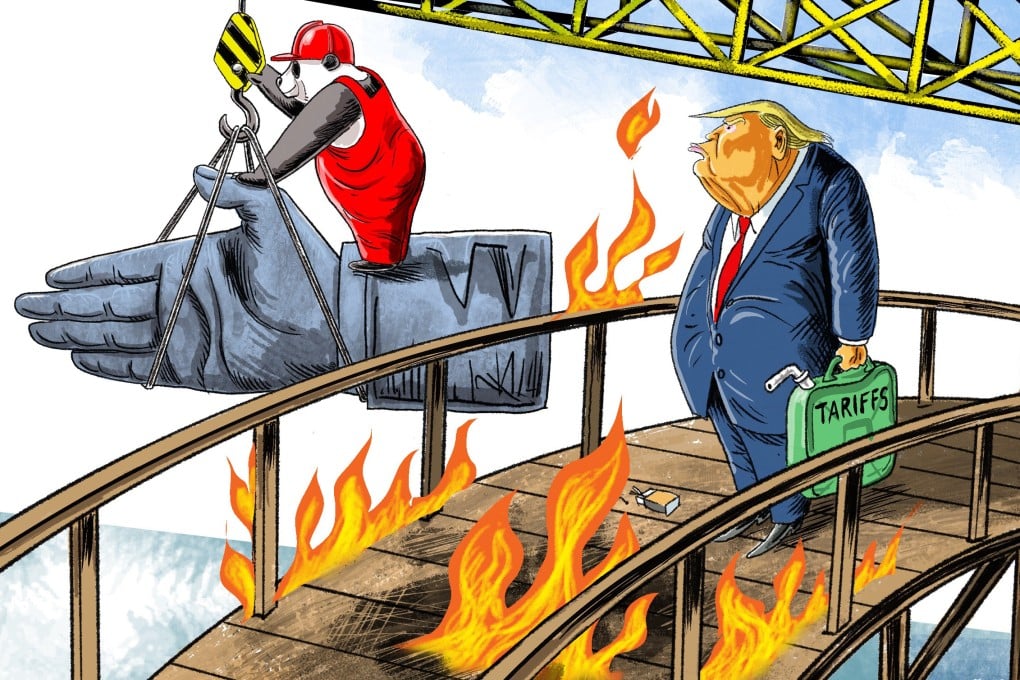Opinion | The US is burning bridges as China builds relationships
Tariffs may quickly reduce US imports, then what? To revitalise US industries, Trump must rebuild the ecosystem, and that takes time

The United States is imposing various tariffs to protect its manufacturing sector, which has been significantly weakened. However, burning bridges with its trading partners before revitalising its industrial ecosystem can be risky. In contrast, China is building bridges with developing countries and making plans to become self-sufficient in food production and technology development.
This evolving set of tariffs aims to protect domestic industries by discouraging imports. However, this strategy is fraught with risks and challenges.
First, it is unclear whether the US has the capacity to rebuild its industrial ecosystem within a short period. Since the globalisation movement that began during the Reagan era in the 1980s, countries have specialised in specific aspects of the manufacturing ecosystem to facilitate global trade.
Over the decades, US firms have offshored many operations, focusing on design and marketing with higher profit margins while allowing China and other developing countries to handle production with lower profit margins.

